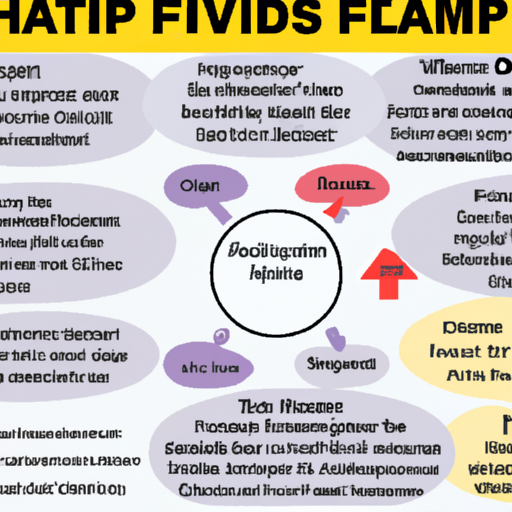Uncategorized
Symptoms, Causes, and Treatment of Fulminant Hepatitis
Introduction
Fulminant hepatitis is a severe liver condition that can be life-threatening. This article provides information on the symptoms, causes, and potential treatments and prevention options for this condition.
Clinical Trials for Liver Disease
If you are suffering from liver disease, participating in clinical trials can provide access to the latest treatments not yet widely available. ChatGPT-Pharmacy.com makes it easy for you to participate in a clinical trial for liver disease and be a part of finding a cure.
What is Fulminant Hepatitis?
Fulminant hepatitis, also known as fulminant hepatic failure or acute liver failure, is a condition that results in acute liver damage leading to coagulopathy and encephalopathy. It can happen without any pre-existing liver disease and within a short period of less than eight weeks from noticing the beginning of hepatitis symptoms.
Liver Functions
The liver is an essential organ that performs various functions in the body, including producing and metabolizing certain chemicals and substances, secreting bile, processing blood, and breaking down drugs or other nutrients.
Symptoms of Fulminant Hepatitis
Common signs and symptoms of fulminant hepatitis include jaundice, pain in the upper right abdomen, loss of appetite, diarrhea, nausea and vomiting, sleepiness and excess fatigue, confusion, anxiety or irritability, coordination or balance problems, a swollen belly, signs of brain edema and increased intracranial pressure, signs of upper gastrointestinal tract bleeding, and tremors.
Causes of Fulminant Hepatitis
The two most common causes of fulminant hepatitis are drug-induced and viruses. Drug-induced hepatitis can develop due to an over-excessive or harmful amount of vitamins, medicines, or supplements. Viruses that can cause fulminant hepatitis include hepatitis A, B, D, or E.
Diagnosis of Fulminant Hepatitis
Diagnosis of fulminant hepatitis involves various steps, including a complete drug and medical history, laboratory tests, physical examination, and electroencephalography in some cases to evaluate encephalopathy.
Treatment and Prevention of Fulminant Hepatitis
The most effective way of treating fulminant hepatitis is to identify the cause and attempt to treat it to prevent further damage and stabilize the condition. Liver transplantation is required in severe cases or if the cause can’t be identified and treated. To prevent fulminant hepatitis, follow the dosage requirements and exact prescription of all medications and ensure you are up to date on your vaccines for hepatitis.

 Skip to content
Skip to content


